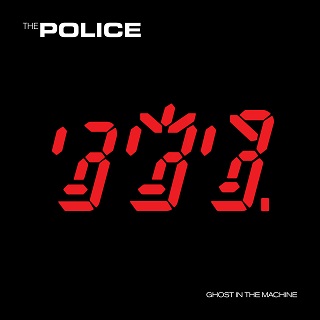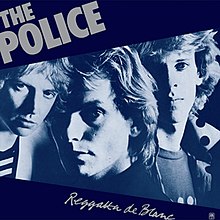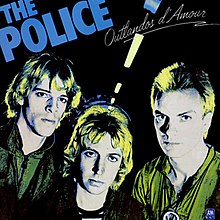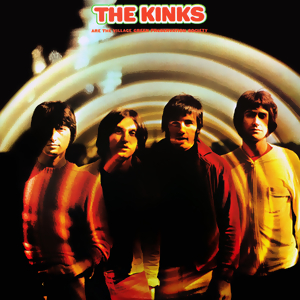THE POLICE: MESSAGE IN A BOX: THE COMPLETE RECORDINGS (1993)
No rating (compilation)
For complete track listing, see here. The following is a listing of the unreleased studio tracks, which the bulk of this review will focus on
1. Fall Out; 2. Nothing Achieving; 3. Dead End Job; 4. Landlord; 5. Visions of the Night; 6. Friends; 7. A Sermon; 8. Shambelle; 9. Flexible Strategies; 10. Low Life; 11. How Stupid Mr. Bates; 12. A Kind of Loving; 13. Someone To Talk To; 14. I Burn For You; 15. Once Upon a Daydream
Best song: among the unreleased tracks, SOMEONE TO TALK TO
If you want (almost) every single thing The Police ever officially released, look no further than this 4-disc box set, which you can buy at your nearest record store or steal at your nearest wireless hot spot! It has all 5 studio albums, plus all of the group's non-album b-sides and a smattering of live tracks that also appeared as b-sides. The live tracks are all decently performed, but aren't really revelatory in any way, even if "Man In a Suitcase" is much better when performed at a fast pace. Also included are a mono remix of "The Bed's Too Big Without You" (pointless) and the '86 remix of "Don't Stand So Close To Me" (terrible), but it's still worth it to get all five albums and some great b-sides all in one convenient package (although if you actually listen to the albums on CD, be warned that Regatta is split between two discs, which is obviously annoying).
Anyway, the albums are obviously all great, but I've already talked about those, so let's look at the 15 studio tracks that never made it onto an album, shall we? Leading off this collection is both sides of the group's first single, featuring original guitarist Henry Padovani. "Fall Out" and "Nothing Achieving" are pretty basic punk songs written by Copeland, but they're catchy and Sting gives enthusiastic vocal performances on both. Copeland also played rhythm guitar on the songs, so Henry literally has fifteen seconds of fame playing two brief guitar solos, and they're fine for this type of song, but nobody but the most hardcore devotee to the punk aesthetic is gonna mourn his loss. We're introduced to Andy Summers on the fun group-credited b-side to "Can't Stand Losing You," "Dead End Job," and it's one of the best "punk" number the group ever did. Continuing onto the Regatta-era songs, the Copeland/Sting collaboration "Landlord" is a relative throwaway, but Sting's "Visions of the Night" is great and probably the closest the band ever came to doing a pure hard rock song. From the Zenyatta era there's Andy's "Friends," a spoken word piece about cannibalism using the "Behind My Camel" guitar tone, giving ample proof (as if any more was needed after "Sally" and "Mother") that Andy is a very weird dude. Love the song, though, and wish it had made the album instead of "Behind My Camel." Stew's "A Sermon" isn't up to his best work, but that "There's no excuse, for the people you've abused" section has a great hook.
Things get a little iffier when we reach the Ghost outtakes. Andy's instrumental "Shambelle" is interesting but overlong, and Sting's "Low Life" is fine, but "Flexible Strategies" absolutely sucks. Not as much as a couple of songs the band recorded for the Brimstone and Treacle soundtrack though--"How Stupid Mr. Bates" and "A Kind of Loving" are EASILY the worst songs in the Police catalog--no interesting instrumentation and bizarre, annoying screaming make me wish they would just end already every time I try to listen to them. "I Burn For You," included in the film but later used as the UK "Wrapped Around Your Finger" b-side, is significantly better, but not as good as the other two Synchronicity b-sides. "Once Upon a Daydream" has a cool ethereal atmosphere in its Summers-penned music, and the lyrics, about getting revenge on a girlfriend's father for beating her and killing her unborn baby, are incredibly chilling. Best of all, though, is Andy's "Someone To Talk To." He doesn't really sing the song, it's more of a mumble, but I've grown so accustomed to how he performs it that I'm glad Sting refused. And just when the endless repetitions of the chorus are becoming monotonous, he starts throwing out a bunch of cool guitar lines. Now, I like "Mother," but the fact that it was on Synchronicity and "Someone To Talk To" was relegated to b-side status makes me rather suspicious that Sting didn't want Andy's best work on an actual album (maybe he didn't want a repeat of "Omegaman"?). Anyway, great song.
I admit that none of these songs, except maybe "Fall Out," would really be considered essential listening, but if you want to get all the albums anyway, why not just get the boxed set? Most of the songs are good, and all the crappy ones are bunched together at the end of Disc 3 anyway. Worth trying to find.







